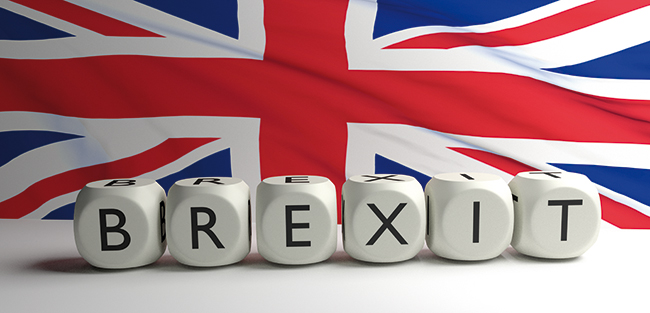Brexit has befallen the art world with all the lightness of a hippopotamus. Along with New York, London is one of the two world art capitals and unquestionably the most important centre in Europe. The fact that it has untied itself from Europe will most definitely entail a series of considerable problems for the economic scene, as well, of course, as the art scene. However, four months after the shock of the referendum, perhaps a more rational analysis might be hazarded, compared to the end of June when many operators envisaged apocalyptic scenarios.
First of all, after the initial shock and dismay, almost all of the investors and money managers are convinced that the shattering of the markets initially forecast will not actually be taking place. The European Union, with Germany in the lead, have vested interests in keeping up good relations with London and maintaining economic exchange at the highest of levels. The United Kingdom is a business partner that no member of the European Union can afford to lose and, after the first threats made immediately following the referendum to isolate the country for voting for out, today these countries are all a little more cautious, starting off from the United Kingdom itself. The UK is moving forward very slowly in terms of how it intends to organise the way it leaves the EU. There’s even the hypothesis that, were some elements to change, a new referendum might indeed be called. Even the markets, after the initial shock, have been exceptionally cautious. Share prices in the City of London as well as other capital cities around Europe fell dramatically at the end of June only to rise considerably again with the months of July and August particularly favourable. The pound sterling, that many predicted to fall helplessly, has made up many of its early losses. Local listings will not be undergoing anything particularly serious or will not be faring any worse than the rest of Europe.
Some real problems, though, might actually be arriving from the UK. At the present moment, the European Union is hardly enjoying one of its finest moments and its long-expected economic recovery is taking its time coming and has yet to actually take off. Furthermore, sectors such as banks are revealing some relatively deep cracks that could lead to real disastrous scenarios. In this case, London might indeed be caught up in this mess like other financial and economic capitals around the world and Brexit would in no way be responsible for this.
Such difficulties might be coming from London’s real estate market, one of the cornerstones of the local economy. However, even in this case, the referendum result would be the least of the causes.
On the basis of this, the art market should not be witnessing anything wholly shattering or no more unsettling than in other sectors. Then, if the pound sterling stayed weak, the cost of art works sold at auction in the local currency would decrease and would award a considerable advantage to foreign purchasers. In such a period of adjustment Brexit might even represent an advantage.
In our opinion, works of art and the art market as a whole are not seen as safehaven assets but are much closer to risk capital. Indicators that have been taken from various sectors of the art world over the last few years have almost completely overlapped the most important benchmarks in terms of shares, starting off from the S&P500. On this basis, it is likely that the prices for the most important art works sold in London will continue to follow the state of the share market just as they have – more or less – always done. Obviously, some of the more highly quoted artists, some of those classic works will fare better in moments of economic instability compared to the more recent contemporary art market. But this occurs in any given moment of economic uncertainty. And it happens, too, in the Stock Exchange. A blue chip with a strong international standing will fare better in those difficult market moments compared to a small cap company that has only recently appeared in the listings.
One element that might be more favourable is British tax policy. The UK, along with the Channel Islands and London, too, has often been considered a real tax haven. Until now, its belonging to the European Union has limited this trend but it is more than likely that leaving the EU might decidedly set off the trend once more in earnest. This would mean the arrival of new capital to London, of so-called “companies” that would be able to work from the centre of the City of London rather than from more remote outposts of the Caribbean. This would also represent a noteworthy advantage for the art world.
In practice, people who expected that the departure from the European Union of one of the world’s great art capitals would cause utter damage have been disappointed. The real threats will most probably be coming from an economic recovery that’s slow off the ground and from difficulties that some of the more important sectors in our daily life – such as the economy – are going through.
1077 Views |
Like

